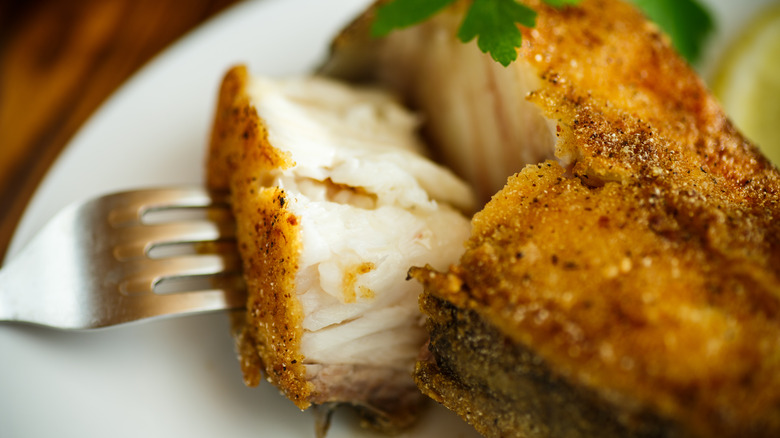Why You May Want To Avoid Eating Leftover Catfish
These days, nearly everything can be repurposed in the form of leftovers. It is easy to turn a rotisserie chicken into a next-day chicken casserole or bring a new spin on yesterday's leftovers in ways you never thought. However, there are a few foods that don't seem to lend themselves to the reheating process — and certain types of meat and seafood definitely fit into this category.
According to Serious Eats, there is some science behind why certain foods don't reheat well — it's something called warmed-over flavor. The process occurs primarily in various meat and seafood dishes, and it happens when certain fats within the meat or fish deteriorate, creating an unpleasant taste or smell. Still, this isn't the only thing that can go wrong when reheating certain seafood and types of fish. One professional chef has another reason why he tries his best to avoid reheating one particular fish variety: catfish.
One professional chef reveals the downside to reheating catfish
Though it's not great to waste food, there are some dishes that just don't hold their flavor long after that initial cooking process is done. To chef Robbie Nicolaisen, catfish is one of those foods. "Most types of non-oily fish dry out really easily when reheated," Chef Nicolaisen, who works at The Hound restaurant down in Auburn, Alabama, told Southern Living. The media outlet reports that the same goes for sole, which is another type of fish that lacks that oily texture. Cooks Illustrated recommends options such as swordfish or halibut steaks, which reheated well in their tests. Sounds like a great opportunity to try out some fish you're not eating but should be.
Fish isn't the only ingredient that is subject to dryness upon reheating; the same goes for steak. Chef Brad Stevens, who works for Dovetail restaurant in Macon, Georgia, told Southern Living that steak is difficult to reheat because of the way its muscle fibers tense up upon refrigerating, which makes it difficult to return it to that melt-in-your-mouth texture.

